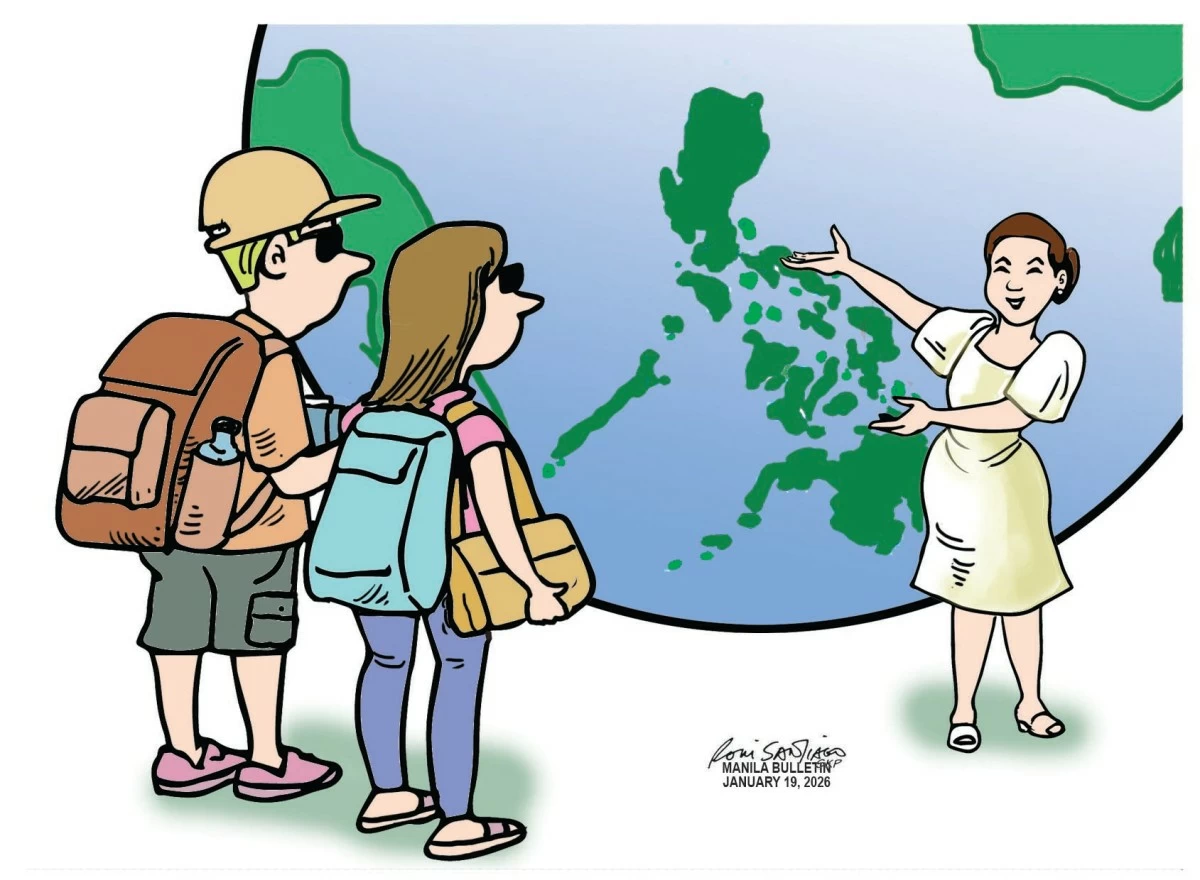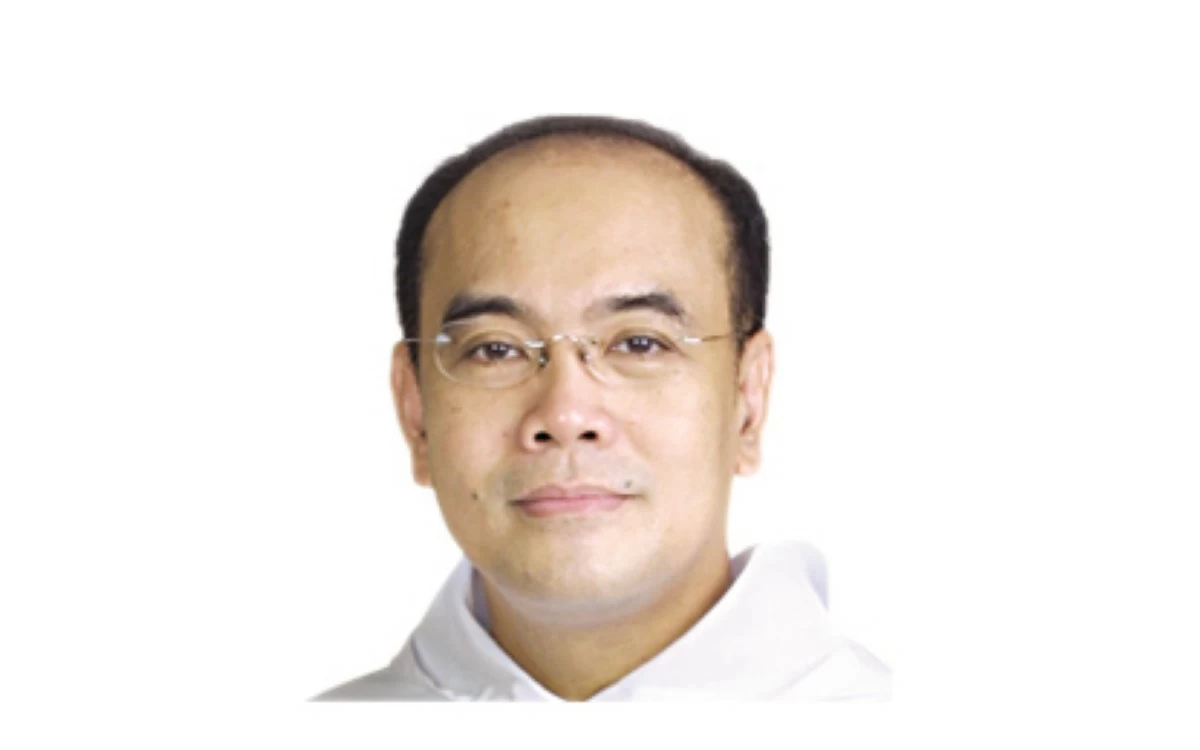
A German Expat in The Philippines - Ein deutscher Auswanderer auf den Philippinen
This might not be the typical expat blog, written by a German expat, living in the Philippines since 1999. It's different. In English and in German. Check it out! Enjoy reading! Dies mag' nun wirklich nicht der typische Auswandererblog eines Deutschen auf den Philippinen sein. Er soll etwas anders sein. In Englisch und in Deutsch! Viel Spass beim Lesen!
You plan to move to the Philippines? Wollen Sie auf den Philippinen leben?
Ja, es gibt tonnenweise Webseiten, die Ihnen sagen wie, warum, vielleicht warum nicht und wann Sie am besten auf die Philippinen auswandern könnten. Ich möchte Ihnen in Zukunft "zwischen den Zeilen" einige zusätzlichen Dinge berichten und erzählen. Viel Spass beim Lesen und Gute Unterhaltung!
Total Pageviews
Monday, January 19, 2026
PH tourism's long road to global competitiveness

Beauty queen Rabiya Mateo reveals battle with depression, anxiety


Sunday, January 18, 2026
How Jesus learned to be human
By Fr. Rolando V. De La Rosa, OP

BLACKPINK set for comeback with new album 'Deadline' in February

K-pop girl group BLACKPINK will be returning to the music scene with the release of their third mini-album “Deadline” on Feb. 27.
On Jan. 14, a video announcing BLACKPINK’s new album was uploaded on YouTube.
The album's title, "Deadline,” is the same name of BLACKPINK’s current world tour. Fans expressed excitement for BLACKPINK’s new album.
Last year, with their digital single "Jump," BLACKPINK achieved their third No. 1 on the Billboard Global 200.
YG Entertainment, BLACKPINK’s agency, earlier announced the group’s comeback. The agency said they have already finished filming the music video and other major album works and are currently in post-production.
"We would like to express our deepest gratitude to the fans who have waited for a considerable amount of time. We plan to repay you with high-quality music, so please show lots of interest,” said the agency, Korean media reported.
BLACKPINK’s world tour covers 16 cities with 33 shows. They held the concert tour in the Philippines on Nov. 22 and 23 last year at the Philippine Arena in Bulacan.
They will perform at the Tokyo Dome in Japan from Jan. 16 to 18, and will end the tour at Kai Tak Stadium in Hong Kong on Jan. 24 to 26.


Screen time isn't the enemy—unsupervised app culture is
Here's what a psychologist advises parents to focus on instead


Saturday, January 17, 2026
Back to the beginning

24 candidates vie for Miss World Philippines 2026 on Feb. 3
By Annalyn S. Jusay
The grand coronation night of Miss World Philippines will be held on Feb. 3 at the SM Mall of Asia Arena, with the organization officially presenting its 24 candidates to the media at the Golden Ballroom of Okada Manila on Jan. 16.

In his opening remarks, Miss World Philippines national director Arnold L. Vegafria expressed hope that the country's second blue crown is within reach, following Megan Young's win in 2013. He noted that last year's representative, Krishnah Gravidez, came close after being named Miss World Asia 2025 at the 72nd Miss World pageant held in Telangana, India.
"Krishnah set the bar high with her near-finish last year, but we pray that we remain consistent with our winning track record," he noted.
Aside from the main winner, the Feb. 3 pageant will also crown the candidates who will represent the Philippines in Universal Woman 2026 and Miss Global 2026.
This year's official candidates are the following:
1. Nikki Malabuyoc Lorzano - Batangas
2. Carolyn Kean Tuquero - Bauan, Batangas
ADVERTISEMENT
3. Gwen Marie Perion - Bukidnon
4. Jayvee Lyn Lorejo - Davao Region
5. Imani Ja'Asia Quiban-Smith - Filipino Community of Hawaii
6. Marizza Delgado - Filipino Community of New York
7. Angel Abergas - Filipino Community of Singapore
8. Margarethe Elize Romano - Filipino Community of United Kingdom
9. Valerie Pawid West - Ifugao
10. Christal Briseis Polancos - Iligan City
11. Zia Ainhize Arboleda - Laguna
12. Anne De Mesa - Manila
13. Zoe Sofia Gabon - Naga City
14. Cindy Valencia - Negros Island Region
15. Meridith Bobadilla - Occidental Mindoro
16. Ronette Castillo - Oriental Mindoro
17. Jiji Galapia - Pampanga
18. Asia Rose Simpson - Quezon City
19. Kiana Rose Henson - Quezon Province
20. Lorraine Ojimba - Rizal Province
21. Olivia Grace Reilly - Sultan Kudarat
22. Cherline Dalangin - Valenzuela
23. Ansha Lichelle Jones - Zamboanga City
24. Roveelaine Eve Castillo - Zamboanga Peninsula

At the event, three candidates were named the Darling of the Press based on their beauty, personality, and stage presence. They are: Miss Davao Region Jayvee Lyn Lorejo, Miss Ifugao Valerie West, and Miss FilCom UK Margarethe Romano.
The candidates will now proceed to a series of fast-track competitions, including Top Model, Talent, Sports Challenge, Multimedia Challenge, and Head-to-Head Challenge. This will all culminate in a Charity Gala Night scheduled on Jan. 29 at the Okada Manila Grand Ballroom.
Vegafria noted that one of its accomplishments this year was acquiring more franchise partners. This led to the participation of Filipino communities in Hawaii, New York, Singapore, the United Kingdom, as well as in Davao City, Ifugao Province, Iligan City, and Sultan Kudarat.

"This is part of our organization's push for inclusivity and our legacy of promoting local tourism. I always say pageantry is the best and cheapest platform to promote our tourism industry. If the government will not do anything to promote, then we will take the initiative ourselves because we love our country," he stressed.
Miss World Philippines 2026 is presented by: JuanHand in cooperation with Bench, Bench Body, and Bench Active. Major sponsors are: GlutaLipo, Philippine Airlines, Honest Glow, Hikari, Hotel 101, SY Glow, Discovery Suites, Monarch Montage Skin Science and Medical Aesthetics International, Nova Aesthetic and Wellness Clinic, and co-sponsors MWell, Hairfix, Megan Beauty, Nutriexpert, Deoflex, and Nook Salon + Estetik.
Miss World PH also gives thanks to: John Robert Powers, SysProtech, Reyes-Tacandong and Company, City of Pasig, Jojo Bragais, Southville, Power House, Victoria Sports Club, Kembot Studios, Sta. Barbara Polo & Racquet Club, Peculiar Eyewear, Proshot, Flower Bouquet by Abbey Abad, and Flower Bouquet by Muelo.
Motorists face ₱2 fuel hike as Iran unrest spurs supply risk
By Gabriell Christel Galang
Published Jan 16, 2026 09:41 am
Fuel prices are poised for a hefty jump next week as escalating geopolitical risks in the Middle East and the Black Sea outweigh a potential global supply glut.
Based on the four-day trading data from the Mean of Platts Singapore, gasoline prices may rise by ₱1 to ₱1.20 per liter, while diesel is projected to spike by ₱1.80 to ₱2 per liter. Kerosene is also expected to increase by approximately ₱1 per liter.
The potential adjustments follow a volatile week where supply disruption fears took center stage.
The rally is being driven by civil unrest in Iran, the fourth-largest producer in the Organization of Petroleum Exporting Countries. Demonstrations against the country’s clerical system have sparked concerns over the stability of its output, which accounts for roughly four percent of global demand.
Any sustained loss of Iranian exports would tighten markets across Asia, particularly in China, which remains the primary buyer of the Islamic Republic’s crude.
“Crude oil and finished petroleum products had a short-lived upswing this week driven primarily by fears of an escalation in tension in Iran,” said Rodela Romero, director of the Department of Energy’s Oil Industry Management Bureau.
Market participants are also monitoring the Strait of Hormuz, a critical chokepoint for global oil transit.
Leo Bellas, president of Jetti Petroleum, said that despite a looming supply surplus, the threat of United States (US) intervention in support of Iranian protesters has raised the risk of the conflict spreading and threatening flows through the waterway.
Further pressure emerged from the Black Sea, where drone attacks on two Western-operated oil tankers added to the geopolitical premium. The incident has intensified worries that regional conflicts are expanding to hit vital energy infrastructure far beyond the Persian Gulf.
Domestic factors are exacerbating the impact of rising global benchmarks. The Philippine peso recently hit a record low of ₱59.46 against the US dollar, adding an estimated ₱0.10 to ₱0.50 per liter to the projected price hikes.
To be sure, some factors could limit the scale of the increases. The U.S. recently reported a larger-than-expected build in oil and fuel inventories, and the potential for steady supply from Venezuela may provide a buffer. However, these factors have yet to offset the risk premium currently baked into regional prices.
Hat das Sparbuch ausgedient? So können Sie sinnvoll Geld für Kinder anlegen
Stand:
Von: Marike Stucke

Das Sparbuch war lange der Klassiker, wenn Eltern oder Großeltern Geld für Kinder und Enkel anlegen wollten. Doch es gibt bessere Alternativen.
Viele Eltern möchten frühzeitig finanziell für ihre Kinder vorsorgen – doch das klassische Sparbuch ist dafür kaum noch geeignet. Die Zinsen sind niedrig, während die Preise steigen. Das bedeutet: Das Ersparte verliert über die Jahre an Kaufkraft, selbst wenn der Kontostand wächst. Für langfristige Ziele wie Studium, Ausbildung oder eine Starthilfe ins Erwachsenenleben braucht es daher bessere Lösungen.
Tipps rund um das Thema Familien-Finanzen finden Sie auch in unserem gratis PDF:
Finanzielle Unterstützung für Familien vom Staat

Welche finanziellen Unterstützungen gibt es vom Staat für Eltern vor und nach der Geburt des Kindes? Dieses PDF gibt einen Überblick über die Leistungen, einzuhaltende Fristen und Voraussetzungen für den Bezug der Gelder.
Eine der beliebtesten Alternativen sind ETF-Sparpläne. Sie investieren breit gestreut in viele Unternehmen und bieten langfristig deutlich höhere Renditechancen als klassische Sparprodukte. Durch regelmäßige Einzahlungen profitieren Eltern vom Durchschnittskosteneffekt, der Kursschwankungen abmildert. Auch Fonds, Tages- oder Festgeldkonten können sinnvoll sein – vor allem für kürzere Zeiträume oder als Ergänzung zu renditestärkeren Anlagen. Viele Familien setzen auf eine Mischung aus Sicherheit und Wachstum.
Eigene Steuerfreibeträge der Kinder nutzen
Besonders interessant ist das Anlegen auf den Namen des Kindes, etwa über ein spezielles Kinderdepot bei Banken oder Online-Brokern. Der große Vorteil: Kinder haben eigene Steuerfreibeträge, die genutzt werden können. Kapitalerträge bleiben so oft steuerfrei, während Eltern mit denselben Erträgen möglicherweise bereits Steuern zahlen müssten. Wichtig ist jedoch zu wissen: Das Geld gehört rechtlich dem Kind und steht ihm spätestens mit dem 18. Geburtstag vollständig zur Verfügung.
Kinderdepots sind bei vielen Banken günstig oder sogar kostenlos und eignen sich gut für langfristige Sparpläne. Ein Anbieter-Vergleich lohnt sich, da Kosten, Angebot und Bedienung variieren.
Noch mehr Infos zu finanziellen Hilfen für Familien vom Staat haben wir in einem praktischen PDF zusammengefasst.
Fazit zur Geldanlage für Kinder
Wer Geld für sein Kind anlegen möchte, sollte das Sparbuch nur noch als kurzfristige Lösung sehen. Langfristige Anlagen wie ETF-Sparpläne bieten deutlich bessere Chancen, Vermögen aufzubauen und die Inflation auszugleichen. In Kombination mit der Nutzung der Steuerfreibeträge für Kinder lässt sich mit überschaubaren Beträgen früh ein solides finanzielles Fundament schaffen – je früher, desto besser.
